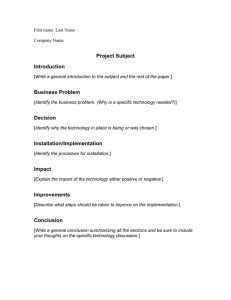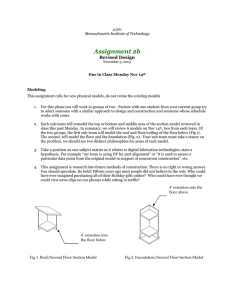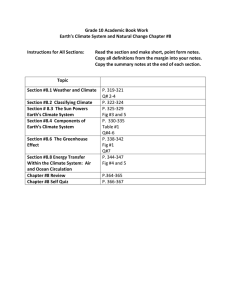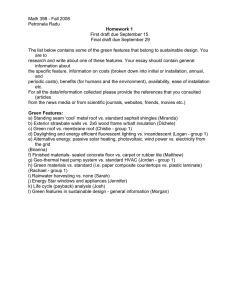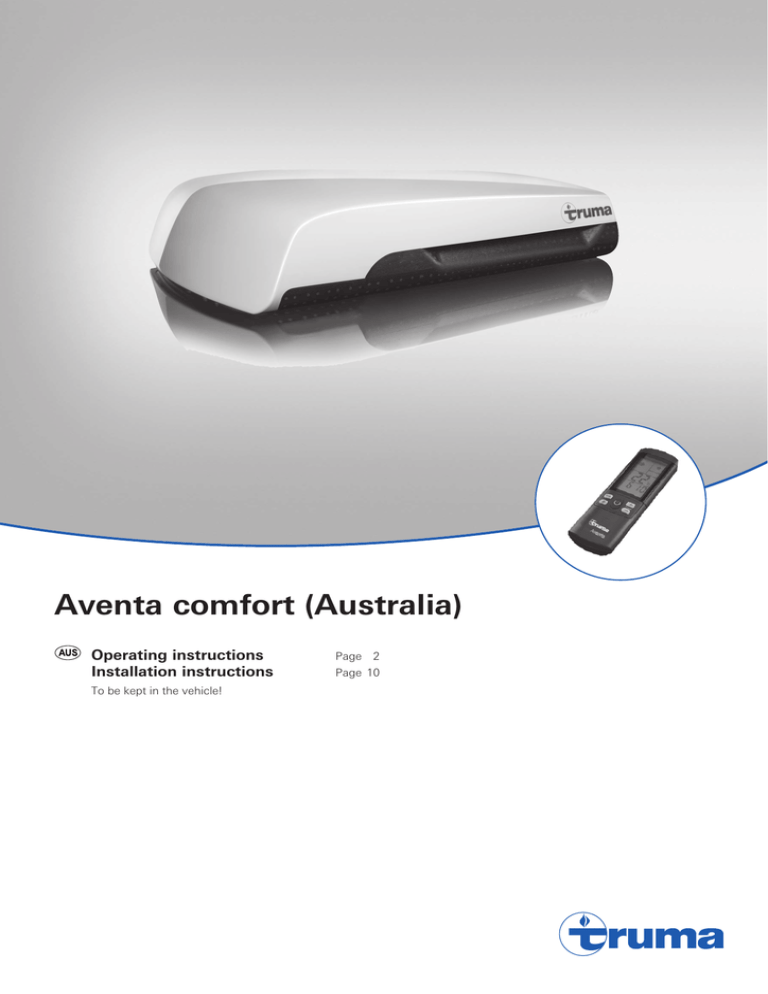
Aventa comfort (Australia)
Operating instructions
Installation instructions
To be kept in the vehicle!
Page 2
Page 10
Aventa comfort
Contents
Symbols used
Symbols used ........................................................................ 2
Safety instructions ............................................................. 2
Notes on using air conditioning systems ....................... 3
The device must only be installed and repaired by an
expert.
Symbol indicates a possible hazard.
Operating instructions
Note containing information and tips.
Remote control ......................................................................
Start-up ..................................................................................
Switching on .........................................................................
Temperature ..........................................................................
Mode .....................................................................................
Fan .........................................................................................
Sleep function .......................................................................
Switching off .........................................................................
Time .......................................................................................
Timer ON / OFF ......................................................................
Ambient lighting ....................................................................
Reset ......................................................................................
Resend ...................................................................................
Setup .....................................................................................
IR receiver and manual on / off .............................................
IR receiver / function indicator ..............................................
Red LED illuminates ..............................................................
Air Distribution ......................................................................
IR remote control battery change .........................................
Maintenance .......................................................................
Disposal ...............................................................................
Accessories .........................................................................
Troubleshooting .................................................................
Technical data .....................................................................
Installation dimensions (in mm) ............................................
Clearance around the air conditioning system ......................
Air inlets / outlets ...................................................................
Condensation traps ...............................................................
Declaration of conformity .................................................
Truma warranty policy .....................................................
4
5
5
5
5
5
5
5
5
5
5
6
6
6
6
6
6
6
6
6
6
7
7
7
8
8
8
8
9
9
Safety instructions
Repairs may only be carried out by an
expert!
To avoid transportation damage, the device
may only be sent to the Truma Service Centre
if agreed beforehand.
The power supply must be disconnected
from the mains (all poles) before opening the
housing.
Installation instructions
Scope of delivery .................................................................
Accessories for installation (optional) ............................
Intended use ........................................................................
Selecting a location .........................................................
Cut-out installation 400 x 400 ........................................
Installation with new cut-out .........................................
Preparation for power cable connection ............................
Securing the device .............................................................
Use of roof thickness adapters ............................................
Securing the air distributor ..................................................
Inserting the filters ...............................................................
230 V electrical connection .................................................
Function test / remote control mounting ............................
10
10
10
10
11
11
12
12
12
13
13
13
13
The device fuses and connection cables must
only be replaced by experts.
The 230 V, T 6.3 A H (slow) device fuse can
be found on the electronic control unit in the
device and must always be replaced with an
identical fuse.
Guarantee claims, warranty claims and acceptance of liability will be ruled out in the
event of the following:
– changes to the device (including
accessories),
– failure to use original Truma parts as replacement parts and accessories,
– failure to follow the installation and operating instructions.
Such changes or non-compliance also invalidate the device operating permit, which in
many countries also denotes expiry of the vehicle operating permit.
2
The refrigerant circuit contains R 407C refrigerant and must only be opened in the
factory.
The air inlets / outlets at the external unit and
the air distributor must not be obstructed
under any circumstances. This is essential
in order to ensure that your device operates
correctly.
In order to avoid damage to the compressor,
no uphill or downhill slopes with an incline of
more than 8 % must be driven on when the
device is being operated while driving (e.g.
with generator or voltage converter).
Do not operate the device in cooling mode
for long periods with the vehicle at an angle, since the condensation that is produced
may not be able to run away and may penetrate the vehicle if the circumstances are
unfavourable.
For problem-free operation and in order to
avoid damage, the supply voltage must always come from a source with a sine wave
curve (e.g. voltage converter, generator) and
without voltage spikes.
When the vehicle is being cleaned it must be
ensured that no water gets into the device
when spraying with a high-pressure cleaner,
for example (do not spray directly into the
openings of the device).
Hot cleaners and steam cleaners must not be
used.
Notes on using air conditioning systems
The air conditioning system is designed for a
power consumption of up to 4.2 A. You should
still check whether the camp site has adequate fuse protection (min. 6 A) before starting the equipment up.
Park the vehicle in the shade if possible.
Darkening with blinds reduces the amount of
heat insolation.
Clean your roof at regular intervals (dirty roofs
heat up more than clean roofs).
Ventilate your vehicle well before starting the
equipment in order to remove accumulated
warm air from the vehicle.
In order to obtain a healthy room climate, the
difference between the inside and outside
temperatures should not be too great. The
recirculated air is cleaned and dried during operation. A pleasant room climate is produced
by drying the moist air, even with small temperature differences.
Keep all doors and windows closed when in
cooling mode so that no condensation buildup occurs at the air distributor.
For faster cooling or heating:
– Set fan level to high,
– Set front / rear air distribution to centre
position,
– Set floor / ceiling air distribution to ceiling.
Condensation traps must always be
unobstructed.
3
Operating instructions
Remote control
The symbols in the display are visible depending on the
settings.
Setup
Resend /
data transmission
Sleep function
Cooling
Heating
Automatic
mode
Fan level
Temperature
Circulated air
Time
Timer
On / Off time
Mode
Operating mode selection button
– Cooling
– Heating
– Automatic
– Circulated air
On / Off switch
Fan level
– low
– medium (not in heating mode)
– high
Time
selection button
Sleep function
(in cooling mode only)
Ultra-quiet fan operation
by reducing the speed of both fans
Time setting
Setting for clock time and timer
Resend
Retransmit data
Ambient lighting
The lighting is dimmed by pressing
and holding down the button. Pressing it
again deactivates or activates the lighting.
Reset
Resets the remote control
to the factory settings.
Timer selection buttons
Switch-on/switch-off time
can be set up to 24 hours in advance
Setup button
Tuning the remote control
and the IR receiver
Fig. 1
4
Temperature selection buttons
16 – 31 °C
In 1 °C steps
Start-up
Before switching on, be sure to check that the camp site
power supply fusing is sufficient (230 V).
In order to prevent the power cable of the recreational
vehicle from overheating (minimum cross-section
3 x 2.5 mm²) the cable drum must be fully unwound.
The remote control must always be pointed at the infra-red receiver in order to perform the individual switching commands.
Before switching on for the first time, the remote control must
be tuned to the IR receiver.
– Insert batteries (pay attention to polarity)
– Setup symbol flashes
(if symbol does not flash, perform Reset)
– Point remote control at IR receiver
– Press Setup button and hold down
– When the red LED on the IR receiver starts to flash, release
Setup button.
The remote control is tuned to the IR receiver, the setup symbol goes out and the air conditioning system starts in circulated air mode on the lowest fan level, with no timer set.
Switching on
Switch on the air conditioning system using the “On/Off
switch” of the remote control. The previous settings are
taken over.
In automatic mode, cooling or heating mode and fan
level are selected automatically according to the room
temperature.
In circulated air mode the interior air is recirculated and
cleaned by the filter. No LED’s illuminate in the IR receiver.
Fan
Select the required fan level by pressing the “Fan level”
button one or more times.
Fan level (not functional in automatic mode):
– low
– medium (not in heating mode)
– high
Sleep function
In “sleep function” (cooling mode only), the internal and external fans operate at slow speed and are therefore extremely
quiet.
Switching off
To switch off, press the “On/Off switch” on the remote
control. The remote control and the device are switched off.
The light can still be switched on and off using the “Ambient
lighting” button.
The circulated air fan runs after switching on. The compressor activates itself after no more than 3 minutes and
the blue (cooling) / yellow (heating) LED flashes.
If the air conditioning system is switched on again,
the blue / yellow LED flashes. The air circulation fan
runs, and the compressor activates itself after no more than
3 minutes.
Temperature
Time
If necessary, use the “Temperature selection buttons” to
set the required room temperature with “+” and “–”.
Press “Time selection button” and set current time using
the “Time setting” buttons.
Mode
The time is always shown on the display (exception with
ON / OFF timer).
Select the required operating mode by pressing the “MODE”
button one or more times.
– Cooling
– Heating
– Automatic (cooling or heating mode, depending on the
room temperature selected)
– Circulated air
When the room temperature that was selected using the remote control is reached in cooling mode, the compressor
switches off and the blue LED in the IR receiver goes off. The
circulated air fan continues to run in order to provide ventilation. If the room temperature setting is exceeded, the device
automatically reverts to cooling mode.
The air is dehumidified during cooling. If the air humidity
in the vehicle is extremely high at the beginning of the
cooling procedure, moisture can build up on the underside of
the air distributor. The doors and windows should therefore be
kept closed and the highest fan level selected.
When the room temperature selected using the remote control is reached in heating mode, the compressor switches off
and the yellow LED lamp in the IR receiver goes off. The circulated air fan continues to run in order to provide ventilation.
If the room temperature falls below the temperature selected,
the device automatically reverts to heating mode.
Heating at an outside temperature of less than 4°C is not
possible because heating performance falls considerably.
Between 4°C and 7°C the device switches briefly to defrosting
processes. At above 7°C there are no restrictions on heating
mode.
The time must be reset after changing the batteries or after a
daylight saving time change.
Timer ON / OFF
With the integrated timer the On/Off time of the air conditioning system can be set in advance for a minimum of 15 minutes to a maximum of 24 hours, starting from the current time.
The device must be switched on using the remote control in
order to program it.
Set required operating mode and room temperature.
Then select TIMER ON or TIMER OFF using the “TIMER
selection buttons”. Set the required On/Off time using the
“Time setting” buttons (15 minutes to 24 hours) and confirm
with TIMER ON and TIMER OFF.
Pressing the relevant timer button again deactivates the timer
function.
Ambient lighting
Irrespective of whether the air conditioning system is operating, the lighting in the air distributor can be switched on or
off by pressing the “Ambient lighting” button. The lighting is dimmed by pressing and holding down the “Ambient
lighting” button. The previous setting is activated when it is
switched on again.
5
Reset
front / rear
right / left
rear
Resets the settings of the remote control to the factory settings when pressed using a ballpoint pen, for example. Setup
symbol flashes. Remote control settings set to “Circulated air”,
fan level low, no timer set.
front
right / left
Resend
ceiling /
floor
rear
Setup
ceiling /
floor
front
The previous settings are resent.
Tune the remote control to the air conditioning system that is
going to be operated. Settings set to “Circulated air”, fan level
low, no timer set.
right / left
IR receiver and manual on / off
There is an additional pushbutton on the IR receiver (m), with
which the unit can also be switched on and off without the
remote control (e.g. with a ballpoint pen).
If the unit is switched on using this pushbutton, the system is automatically reset to the factory settings (automatic mode 22 °C).
IR receiver / function indicator
Fig. 3
IR remote control battery change
Only use micro-batteries that will not leak, type LR 3, AM4,
AAA, MN 2400 (1.5 V).
The battery compartment is on the back of the remote control.
When inserting new batteries, make sure
the positive / negative terminals are connected correctly.
LED 2
m
LED 1
right / left
IR receiver /
function indicator
Empty, used batteries can leak
and damage the remote control!
Remove the batteries if the remote control is not being used for a long period of
time.
LED 3
Fig. 2
LED 1 blue – illuminated – (cooling mode)
LED 1 blue – flashing – (cooling mode compressor start-up)
Fig. 4
LED 2 yellow – illuminated – (heating mode)
LED 2 yellow – flashing – (heating mode compressor start-up)
No warranty given for damage caused by leaking
batteries.
LED 3 red – flashing – (data are being transmitted)
LED 3 red – illuminated – (fault)
Before scrapping the remote control, always remove the batteries and dispose of them properly.
Red LED illuminates
The device is indicating a fault. Switch device off, wait for a
short time and switch on again. If the red LED continues to
illuminate, please contact the Truma Service Centre.
Air Distribution
Right / left
There are two individually adjustable air outlets at the front
and rear.
Front / rear
The air flow can be metered between the front and rear areas
of the vehicle.
Ceiling / floor
The air flow can be directed from the ceiling to the floor.
The tuning between the remote control and the air conditioning system is retained if the batteries are removed.
Maintenance
Carry out filter changes depending on the amount of use, but
at least every 12 months. Never operate the air conditioning
system without a filter. This can lead to loss of power. Keep
the air inlets / outlets and the condensation traps free of obstructions such as leaves at all times. The air conditioning system should only be cleaned with a soft, damp cloth.
Disposal
The device must be disposed of in line with the administrative regulations of the respective country in which it is used.
National regulations and laws (in Germany, for example, the
End-of-life Vehicle Regulation) must be observed.
In other countries, the relevant regulations must be observed.
6
Accessories
Technical data
Filter set, 2 pieces (part no. 40091-16800).
Fig. 5
Troubleshooting
Fault
Cause / Remedy
Device not cooling
– Thawing procedure in progress
– Remote control temperature
setting reached or too high
Device not heating
– Defrosting process running
(outside temperature between
4 °C and 7 °C
– Outside temperature below 4 °C
Device cooling /
heating inadequately
or not at all
– Filter soiled, change filter.
Moisture on underside
of air distributor
– Close windows and doors and
select high fan level
Water dripping out of
air distributor
– Condensation trap on external
unit blocked
Determined on the basis of EN 14511 or Truma test conditions.
Power supply
230 V – 240 V ~, 50 Hz
Power consumption
Cooling: 4.2 A
Heating: 3.7 A
Starting current
28 A (150 ms)
Cooling power
2.4 kW
Heating power
1.7 kW (heat pump)
Air volume flow
max. 400 m³/hr.
Usage limits
+4 °C to 40 °C.
Maximum angle during operation
8 %
Weight
33 kg plus installation materials
Dimensions (W x H x D)
External: 660 x 248 x 1008 mm
Internal: 523 x 46 x 670 mm
Refrigerant
R 407C
Refrigerant content
see type plate on unit
– External air routes soiled /
blocked
– Seal between device and roof
not intact
5375
Right reserved to make technical changes!
– System at too much of an angle
Remote control
not working
– Check batteries in remote control and replace if necessary
Device not reacting
to remote control
commands
– Check whether there are obstructions between the remote
control and the IR receiver
– Is the remote control tuned to
the IR receiver? / tune remote
control to IR receiver.
If these actions do not remedy the problem, please
contact Dometic Service.
7
Installation dimensions (in mm)
The clearance around the air distributor must allow the air to
blow out without obstructions. The side clearance must be at
least 40 mm. The pivoting range of flaps and doors must be
taken into consideration.
40
248
1008
67
0
4
38 00
0
25 - 110
3
52
40
78
0
35
46
670
0
40
Fig. 6
46
Fig. 9
Air inlets / outlets
523
400
(350)
660
400
(380)
195
(215)
530
Fig. 7
Clearance around the air conditioning system
The clearance around the external unit must be 20 mm at
the front and 100 mm at the side. At least 30 mm of clearance
must be left at the rear. Truma recommends clearance of
200 mm so that the exhaust air can blow out freely.
Fig. 10
Condensation traps
The condensation is led away via the roof of the vehicle.
20
0
20
10
0
0
3
10
0
8
6
6
0
0
0
1
Fig. 8
8
Fig. 11
Right reserved to make technical changes!
Declaration of conformity
Truma warranty policy
1. Information about the manufacturer
The warranty is given by Dometic Pty Ltd, Building 3B,
Clayton Business Park, 1508 Centre Road, Clayton, Victoria,
3168, for 12 months from the date of purchase against any
defect arising from faulty materials or workmanship.
Name:
Address:
Truma Gerätetechnik GmbH & Co. KG
Wernher-von-Braun-Str. 12, D-85640 Putzbrunn
Repairs will be carried out during normal business hours only by
Dometic Pty Ltd, or its duly authorised service agents, and are
subject to the warranty conditions and exclusions hereunder.
2. Device identification
Type / model:
Aventa comfort air conditioning system
Warranty conditions
3. Complies with the requirements of the following
EC directives
– The company will only provide service on presentation of
proof of purchase, on either the Truma product, or the Caravan / RV / Pleasure Craft in which the Truma product has
been installed, to any authorised service agent. The purchaser must allow the service agent to photocopy the proof of
purchase to facilitate his claim to the manufacturer.
– Warranty repairs can only be performed by authorised service agents and under no circumstances will Dometic reimburse repairs carried out by unauthorised persons. Tampering with any part of the product by unauthorised personnel
will automatically void the warranty.
– The product must be used solely for domestic purposes
only. If the product is used for commercial purposes the
warranty is 6 months only.
– Where applicable, the products must be used on the appropriate electrical voltage, gas type and pressure, or fuel source.
– If at any time during the warranty period any part or parts
are replaced with a part or parts not supplied or approved
by Truma, this warranty shall immediately become void.
3.1 Electromagnetic compatibility 2004/108/EC
3.2 Low voltage directive (2006/95/EC)
3.3 Radio interference suppression of motor vehicles 72/245/
EEC (with supplements), ECE Regulation R10 Revision 3
3.4 End-of-life vehicle directive 2000/53/EC
and bears the type approval number E24 10R-030696
and the CE symbol.
4. Basis of the proof of conformity
EN55014-1; EN61000-3-2; EN61000-3-3; EN62233:
EN55014-2; IEC / EN60335-1; IEC / EN60335-2-40;
2009/19/EC; DIN EN378-2;
5. Signatory details
Important notice
Signature: p.p. Axel Schulz
Product Centre Manager
Putzbrunn, 21.10.2013
Before calling a service technician please check carefully the
operating instructions, warranty terms and conditions. If the
product fails for any of the reasons detailed therein, or is faulty
due to abuse, misuse or improper installation, then a service fee
shall be charged to the purchaser.
If you have any queries regarding the interpretation of the
warranty you should contact Dometic Pty Ltd.
Whilst this book represents service outlets at the time of
printing, changes occur from time to time. Should you have
any queries or wish to locate your nearest authorised service
agent please contact Dometic Pty Ltd.
Warranty does not cover
– Any appliance which has been:
(a) Subject to misuse, neglect, accident or alteration by any
person.
(b) Damaged or destroyed by fire, flood, act of God or other
inevitable accident.
– Fair wear and tear.
– Damage from foreign substances such as dirt or liquid.
– Travelling expenses or call out fee to and from authorised
service agents premises.
– Accommodation or Site Expenses.
– Cleaning of the system. This is considered to be a part of
normal product maintenance.
– Non operation of the appliance or resultant damage to the
unit where the appliance has been operated in an out of
level situation.
– Freight cost of the appliance or parts, to or from, point of
service or transit damage.
– Dometic / Truma are not responsible for resultant loss or
damage sustained by the purchaser.
– Non operation of the appliance or resultant damage to the
unit where the appliance has not been installed, ventilated,
flued or operated in accordance with the manufacturers
instructions.
Apart from any warranties implied by the Trade Practices Act
1974 or any relevant State legislation all other warranties express or implied whether arising by virtue of statute or otherwise are hereby excluded.
9
Installation instructions
12 V adapter for air distributor lighting
1 pc. (part no. 40091-33000)
Fig. 16
Fig. 12
Intended use
The unit must only be installed and repaired by an expert.
Read the installation instructions carefully before commencing the work, and then comply with them!
Scope of delivery
External unit:
– 1 Aventa comfort
– 2 brackets
– 4 screws M6 x 70 coated with screw sealant
– 6 screws M6 x 12 coated with screw sealant
– 1 base ring
– 2 roof thickness adapters (each 10 mm)
– 1 remote control with mounting
– 2 screws 2.9 x 16 for mounting
– 2 AAA batteries
– 1 set of operating and installation instructions
– 1 installation template
– 3 Wago clamps
Air distributor (must be ordered separately)
– 1 air distributor, fully assembled
Accessories for installation (optional)
Roof thickness adapter 10 mm, 1 pc. (part no. 40091-16900)
Fig. 13
Sealing frame (part no. 40091-19500)
Recommended for optimum sealing when retrofitting in vehicles with 400 x 400 mm cut-out.
This device has been designed for installation in motor homes
and caravans and is intended for use in the private sector.
Other applications are only permitted after prior consultation
with Truma.
Selecting a location
Once the roof-mounted air conditioning system has
been installed, any nearby exhaust cowl must extend
at least 10 cm above the air conditioning system. The exhaust
cowl must be extended if necessary (pay attention to the
heater manufacturer’s specifications).
The roof of the vehicle (roof thicknesses of 25 to 110 mm)
must be level and smooth.
Three installation options are available:
– The cut-out must be cut out again (350 x 380 mm).
– Cut-out of an existing roof hatch (400 x 400 mm) without a
sealing frame (accessory).
– Cut-out of an existing roof hatch (400 x 400 mm) with a
sealing frame (accessory). The installation instructions are
included with the sealing frame.
Attention must always be paid to the following points:
– The device should be installed as close as possible to the
centre of the vehicle.
– Check that no obstructions are present that will hinder
installation.
– There may be electrical cables running between the interior
and the exterior of the roof. Disconnect all voltage sources
before starting the work (all poles).
– The roof load must not be exceeded (see vehicle manufacturer’s specifications).
– Check interior installation site for obstructions.
– A wooden reinforcing frame (min. 25 mm) must be installed
around the roof cut-out between the upper and lower surfaces of the roof. The insulation may have to be removed.
When the skylight with safety ventilation is replaced by
the air conditioning system, it must be ensured that the
safety ventilation is restored in another suitable location.
Fig. 14
Covering tape
cream (part no. 40091-31200)
grey
(part no. 40091-31300)
For compensating for a gap of up to 5 mm between air distributor and roof.
l ~ 2.36 m
Fig. 15
10
Cut-out installation 400 x 400
Installation with new cut-out
For optimum sealing we recommend the use of the sealing
frame that is available as accessory (part no. 40091-19000).
For vehicles without an existing cut-out:
required cut-out 350 x 380 mm.
For installation with a sealing frame, please refer to the installation instructions provided with the sealing frame.
Place template on installation location on vehicle, mark cutout
(350 x 380 mm) and cut it out.
When installing the device in vehicles with an existing roof
hatch, the cut-out must measure 400 x 400 mm.
Mark the 4 holes (10 mm) for bracket attachment and drill
holes in roof.
Remove existing roof hatch (make cut-out bigger if necessary).
5
0
Remove sealant residue and unevenness.
4
0
0
3
Fill in screw holes with body sealant.
380
400
Fig. 18
Fig. 17
For the other installation steps, please refer to “Preparation
for power cable connection”.
11
Preparation for power cable connection
Securing the device
Provide leadthrough for mains cable to connection point, e.g.
in the false ceiling.
Screw the two brackets (marked with an arrow in the direction
of travel) to the device using the 4 provided M6 x 70 screws
(with screw sealant).
Torque 1.8 Nm
If the roof is more than 50 mm thick, M6 screws (length =
roof thickness + 30 mm) with tensile strength of 8.8 must be
used. The screws must be secured with low-strength screw
sealant (e.g. Loctite).
Fig. 19
Move device to roof in a horizontal position and insert into
cut-out. The arrow should point in the direction of travel.
1.8 Nm
Fig. 22
If the screws are used more than once (e.g. after removal) they must be coated with low-strength screw
sealant again (e.g. Loctite) or the screws provided as spare
parts used.
Use of roof thickness adapters
Fig. 20
Do not apply any additional sealing materials between
the air conditioning system and the roof.
If the device was turned around or moved out of its horizontal installation position, wait 2 hours before switching
it on.
Push base ring (1) and, depending on the thickness of the
roof, the roof thickness adapters (2 or 2+3, included) for roof
thicknesses of 25 to 50 mm into the air distributor as far as
they will go. If the roof is thicker, use additional 10 mm roof
thickness adapters (see accessories). Maximum roof thickness 110 mm
Push device forwards in cut-out as far as it will go.
Remove protective film from device.
Route mains cable to connection point (lengthen cable with
provided Wago clamps if necessary).
If the lighting of the air distributor is also going to be
optionally operated using 12 V, the 12 V adapter that is
available as an accessory must now be connected. The installation instructions are provided with the 12 V adapter.
3
2
1
25 – 30 mm = 1
31 – 40 mm = 1+2
41 – 50 mm = 1+2+3
Fig. 23
Fig. 21
12
Securing the air distributor
Inserting the filters
Connect the cable from the air distributor to the electronics
unit.
Insert filters into panels and attach to the air distributor.
Fig. 26
Fig. 24
Screw air distributor (arrow in direction of travel) to bracket
with 6 screws M6 x 12 mm.
The covering tape that is available as an accessory can
be used to compensate for the gap between the air distributor and the roof.
Fig. 27
Fig. 28
230 V electrical connection
Fig. 25
If the screws are used more than once (e.g. after removal) they must be coated with low-strength screw
sealant again (e.g. Loctite) or the screws provided as spare
parts used.
The 230 V electrical connection must always be made
by an expert (in accordance with VDE 0100, part 721 or
IEC 60364-7-721, for example, in Germany). The instructions
shown here do not constitute a request to non-experts to
make the electrical connection, but serve as additional information for an expert who is employed to do the work!
Connect the mains cable that has been routed to the connecting point.
All cables must be secured with clamps!
An insulating device for providing all-pole insulation from
the mains with contact clearance of at least 3.5 mm must be
provided at the vehicle side for carrying out maintenance and
repair work.
Function test / remote control mounting
Attach the mounting for the remote control in the required
location.
All device functions must subsequently be tested as
described in the operating instructions.
The installer must check that the condensation traps are clear
after installing the system.
The operating instructions must be handed over to the vehicle
owner.
13
In Australia, always notify the Dometic Service Centre
if problems are encountered; in other countries the
relevant service partners should be contacted
(www.truma.com).
40091-39400 · 07 · 05/2015 · ©
Having the equipment model and the serial number
ready (see type plate) will speed up processing.
Dometic Pty Ltd
Building 3B,
Clayton Business Park
1508 Centre Road
Clayton, Victoria, 3168
Australia
Service (Australia)
Telephone:
Facsimile:
+61 (0)3 92 39 10 50
+61 (0)3 92 39 10 99
Dometic New Zealand Ltd.
Post Box 12011
1642 Penrose, Auckland
New Zealand
Service (New Zealand)
Telephone
Facsimile
+64 (0)9 622 14 90
+64 (0)9 622 15 73

